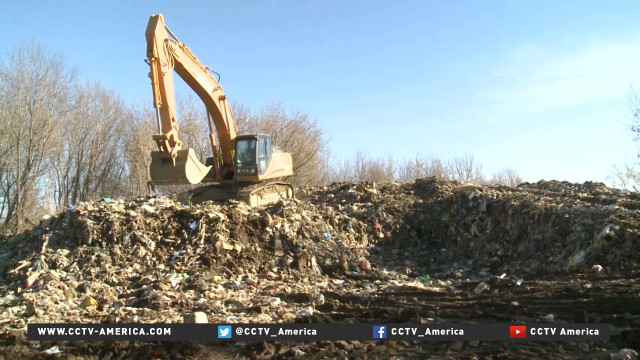Moscow’s regional landfill sites, many of them opened in the 1980s, are now full or overflowing. As the city has grown, its waste disposal systems have not kept pace giving rise to illegal dumping grounds. CCTV’s Tom Barton filed this report.

Russia faces growing illegal garbage dumping
Moscow's regional landfill sites, many of them opened in the 1980s, are now full or overflowing. As the city has grown, its waste disposal systems have not kept pace giving rise to illegal dumping grounds. CCTV's Tom Barton filed this report.Highlights:
- Regional authorities say that 80 percent of all Moscow’s existing landfill sites will reach their capacity limit this year.
- Moscow’s department responsible for nature management in the city says that while the matter of illegal dumps are being looked into, it’s unclear who has the final responsibility for restoring the sites to their former state.
Waste picking becoming a profitable part of economy
In Peru, people have been making a living from other people’s trash for decades. They’re sometimes called wastepickers or recyclers. But regardless of the name, it’s become a real engine of economic growth. CCTV’s Dan Collyns has more from Lima.

Waste picking becoming a profitable part of economy
In Peru, people have been making a living from other people's trash for decades. They're sometimes called wastepickers or recyclers. But regardless of the name, it's become a real engine of economic growth. CCTV's Dan Collyns has more from Lima.Highlights:
- Peru became the first country to introduce a “Law of the Recycler” in 2009.
- Peru now has more than 200 programs supporting recycling collectives in urban areas and 15-hundred formal recyclers.
- Waste pickers used to earn only about two or three dollars a day. Now, recyclers can earn four times as much.
 CGTN America
CGTN America
